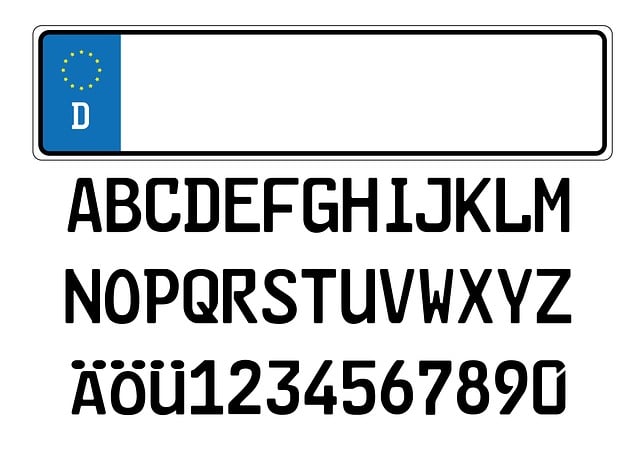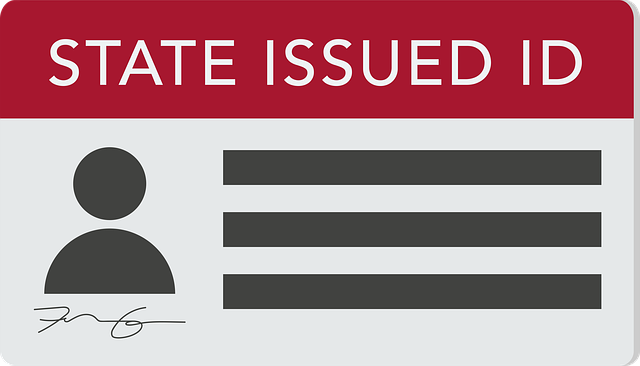A Vehicle Identification Number (VIN) is a 17-digit code that provides detailed insights into a car's history, including accidents, repairs, recall notices, and ownership changes. Using VIN decoders, buyers can access this information to avoid purchasing "hidden lemons," ensuring safety, transparency, and informed decision-making in the used car market.
Understanding a Vehicle Identification Number (VIN) is crucial for anyone looking to buy a used car. This 17-digit code acts as the vehicle’s unique fingerprint, providing insights into its history and specifications. With tools like VIN decoders and free check services readily available, buyers can now uncover critical information such as accident histories and unresolved recalls before making a purchase. In an era where over 31 million vehicles were recalled in 2023 alone, according to the National Highway Traffic Safety Administration, knowing how to interpret a VIN could save you from buying a “hidden lemon.” This article will guide you through decoding the VIN, its importance, and practical tips for avoiding potential pitfalls.
- Decoding the VIN: Unlocking Car History
- Importance of VIN in Vehicle Purchase
- How VIN Check Services Work
- Uncovering Recalls and Accidents with VIN
- Locating Your Vehicle's VIN
- Avoiding Hidden Lemon: Tips from VIN Analysis
Decoding the VIN: Unlocking Car History

Decoding the VIN involves more than just looking up a vehicle’s make and model. Each digit and letter in a 17-digit VIN carries specific meaning, providing insights into the car’s past. For example, the first three characters represent the manufacturer, while the fourth to eighth positions detail the model year, production facility, and other identifying information. The remaining digits and letters indicate unique features, such as engine type, transmission, and color. With a VIN decoder tool, buyers can quickly interpret these codes, uncovering valuable details about a vehicle’s history, including accident reports, ownership changes, and outstanding recalls.
This process empowers individuals to make more informed decisions when purchasing used cars. By decoding the VIN, potential buyers can avoid unexpected surprises, ensuring they’re not taking home a vehicle with undisclosed issues. It’s an essential step in protecting oneself from buying a “hidden lemon” and promotes transparency in the automotive market.
Importance of VIN in Vehicle Purchase

The Vehicle Identification Number (VIN) is an indispensable tool for any prospective car buyer. It serves as a comprehensive report card, offering insights into every facet of a vehicle’s history and design. By simply checking a VIN, buyers can uncover a wealth of information that could otherwise remain hidden. This includes details about the manufacturer, model year, production facility, and even specific equipment and color choices. More importantly, a VIN check reveals critical data such as accident records, outstanding recalls, and previous ownership history, all of which are crucial in assessing a vehicle’s true value and reliability.
In today’s market, where used cars often come with undisclosed issues, relying solely on a seller’s word can be risky. However, with easy access to VIN decoders and free number check services, buyers can now make informed decisions. These tools empower consumers to verify the authenticity of a vehicle before making a significant investment, thus reducing the likelihood of purchasing a ‘hidden lemon.’ Given the vast number of recalls and accidents reported annually, as highlighted by the National Highway Traffic Safety Administration’s statistics, being proactive through VIN checks is not just recommended but essential for savvy car buyers.
How VIN Check Services Work

VIN check services operate by using the 17-digit unique code to query extensive databases maintained by various automotive authorities and manufacturers. When you input the VIN, these services cross-reference the data against records related to accidents, repairs, ownership history, and recall notices. They then provide a comprehensive report detailing any significant events associated with that specific vehicle, giving buyers a clear picture of its past. This transparency is invaluable, as it allows prospective owners to make informed choices and avoid purchasing vehicles with hidden issues or undisclosed problems.
Uncovering Recalls and Accidents with VIN

A Vehicle Identification Number (VIN) is much more than just a sequence of letters and numbers; it’s a treasure trove of information that can help buyers make smart choices. With the right tools, like VIN decoders, one can uncover a car’s past, including any accidents or recalls it has experienced. This becomes especially crucial when purchasing a used vehicle, where hidden issues might go unnoticed otherwise.
For instance, a simple VIN check can reveal if a vehicle was involved in a serious crash, which may impact its structural integrity and safety features. Moreover, it allows buyers to verify if there are any outstanding manufacturer recalls for the specific make and model, ensuring that any potential hazards are addressed before the car changes hands.
Locating Your Vehicle's VIN

Every vehicle has its unique VIN, and it’s typically located in several easily accessible places. The most common spots are on a plate affixed to the driver’s side door jamb or inside the engine bay. It can also be found on the dashboard, near the airbag module, or on the glove compartment door. On newer models, you might find it engraved into the car’s body panel or stamped on the steering wheel column. If you’re buying a used car, don’t hesitate to ask the seller for the VIN and cross-reference it with official records to ensure its authenticity.
Avoiding Hidden Lemon: Tips from VIN Analysis

Avin analysis is a powerful tool to avoid purchasing a “hidden lemon.” By decoding the 17-digit VIN, buyers can access a wealth of information about a vehicle’s past. This includes details on accidents, structural damage, and whether it has been in any recalls or repair campaigns. For instance, a simple VIN check can reveal if a car was involved in significant collisions, which might have compromised its safety and structural integrity.
Additionally, VIN decoders provide insights into service history, helping buyers determine if the vehicle has received proper maintenance. Unresolved recall issues, which can pose serious safety hazards, are also exposed through this process. Armed with such knowledge, consumers can make more informed decisions, ensuring they don’t end up with a vehicle that has hidden costs or potential safety risks.
Understanding the Vehicle Identification Number (VIN) is not just about unlocking a car’s history; it’s your shield against making costly mistakes. By utilizing VIN decoders and free check services, you gain invaluable insights into a vehicle’s past, ensuring you avoid hidden lemons and make informed decisions. Stay vigilant, stay safe, and remember: knowledge is power when buying a car.



